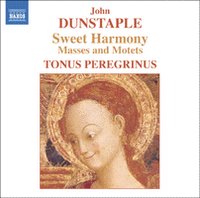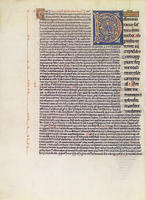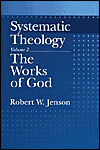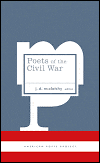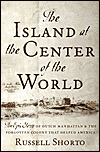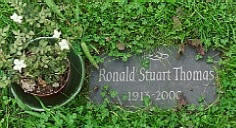"If only the geologists would leave me alone. After each Bible verse I hear the blows of their hammers."
Philip Yancey has written that astronomy is no friend to his spirituality. He looks up in the sky, ponders the unimaginable distances, considers the uncountable number of stars, and then questions whether his faith is a bit too parochial to serve as ultimate truth. I know how Yancey feels, but my angst has nothing to do with astronomy (paradoxically, I find astronomy awe-inspiring and good for my spirit). My bête noir is evolution, and always has been and probably always will be.
Why is this so, you ask? It has to do more with impressions - let us say "inklings" - than anything else. I am a committed evolutionist, and accept the extraordinary amount of scientific data accumulated over the past 150 years, which points to the fact that life on this planet has been evolving and changing for over 3 billion years. For me, to take any other position would be akin to committing intellectual

suicide. I consider the arguments against evolution to be religious presuppositions masking as pseudo-science, and having all the credibility we now give to the
Flat Earth Society (which by the way, still exists, and which shows just how resistant humans are to reality). Creationists like to point out the many missing pieces of information concerning the mechanics of evolution (e.g., the lack of transitional forms in the geological record), and they do have a point. Scientists themselves fiercely debate natural selection via mutation over time, versus punctuated equilibrium and other theories on how species arise and change. For example, there is a lively debate going on now whether birds are really dinosaurs. Nonetheless, 95% of all species which have ever existed are extinct, and while the specifics of evolution are being debated and investigated, the theory of evolution is now a fundamental scientific principle, debated only by people who live in Kansas, biblical literalists, and those whose family trees do not "sprout."
The problem which evolution presents for theology, is in my opinion, not sufficiently appreciated by theologians. For our understanding of salvation is based upon a Fall,
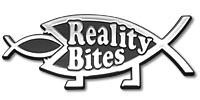
an historical Fall, which left humanity in a state of sin requiring a savior. Further, scientific discoveries have resulted in a paradigm shift in anthropology. Humanity is now part of a taxonomic "tree," part of the great ape family, with extinct relatives who had culture and religion (e.g., Neanderthals). So out goes Adam, Eve, the Fall, the Garden, etc. Out goes human uniqueness. Gorillas make and use tools. Chimpanzees learn sign language. When exactly did the Fall occur? Without an historical Fall, how can we say we are "born in sin?"
That's just the tip of the iceberg for my angst. Evolution threatens the very morality of God. Cambrian life forms, which are some of the oldest fossils ever found (400 million B.C.), reveal animals eating other animals with great relish.

In other words, the world never had a "peaceable kingdom," and the suffering of animals is not a result of human sin, but rather is the result of an adaptive advantage: i.e., the first creature who took a bite out of his neighbor got a big protein surge. This bothers me because it implies that this process of kill and/or be killed is either God-ordained, or that God doesn't get too involved with things (which is the philosophy of
deism).
Another thorn in my side is whether or not Neanderthals and
australopithecines have souls. I could go on, but I think you get the point. I actually agree with creationists on one point: if you accept evolution, it fundamentally undermines the biblical revelation.

I see these two views of life as imcompatible, even at war with one another. Of course, I could just accept the changes evolution has made upon my worldview, and alter my theology accordingly. Many sincere believers do. But I remain nervous in the service of my Lord, and I don't like these accommodations - they reek of eventual defeat.
I look up into the sky and glorify God for a truly awesome universe. I look at the
Burgess Shale and wonder what to do with the baby Jesus. Perhaps I'll just put this on my bumper:

 Steve at Hemmeke blog asked me for some recommendations about early music. I replied in the comments section, but it got a bit long, so I copied it here. I am not a musicologist, only a devoted listener. Steve mentioned he had some music by Thomas Tallis and Giovanni Palestrina, who represent in my opinion the Himalayas of Renaissance music. There are no shortage of choirs & recordings of both, but I consider the voices and direction of the Tallis Scholars (Gimell) to be the finest. Important works of Tallis would include "Spem Et Alium," "Mass in 4 Voices," "Lamentations of Jeremiah," and English Anthems (sublimely: "If Ye Love Me," and "Loquebantur"). For Palestrina: Missa Papae Marcelli, Missa Assumpta Est, Missa Brevis. The Gimell label cds are expensive ($20), but exceed all others in quality. Most of the above are available on Naxos, sung by other lesser, but quite capable choral groups (e.g., Oxford Camerata). Naxos.com has full listings under each composer, which helps greatly.
Steve at Hemmeke blog asked me for some recommendations about early music. I replied in the comments section, but it got a bit long, so I copied it here. I am not a musicologist, only a devoted listener. Steve mentioned he had some music by Thomas Tallis and Giovanni Palestrina, who represent in my opinion the Himalayas of Renaissance music. There are no shortage of choirs & recordings of both, but I consider the voices and direction of the Tallis Scholars (Gimell) to be the finest. Important works of Tallis would include "Spem Et Alium," "Mass in 4 Voices," "Lamentations of Jeremiah," and English Anthems (sublimely: "If Ye Love Me," and "Loquebantur"). For Palestrina: Missa Papae Marcelli, Missa Assumpta Est, Missa Brevis. The Gimell label cds are expensive ($20), but exceed all others in quality. Most of the above are available on Naxos, sung by other lesser, but quite capable choral groups (e.g., Oxford Camerata). Naxos.com has full listings under each composer, which helps greatly.

